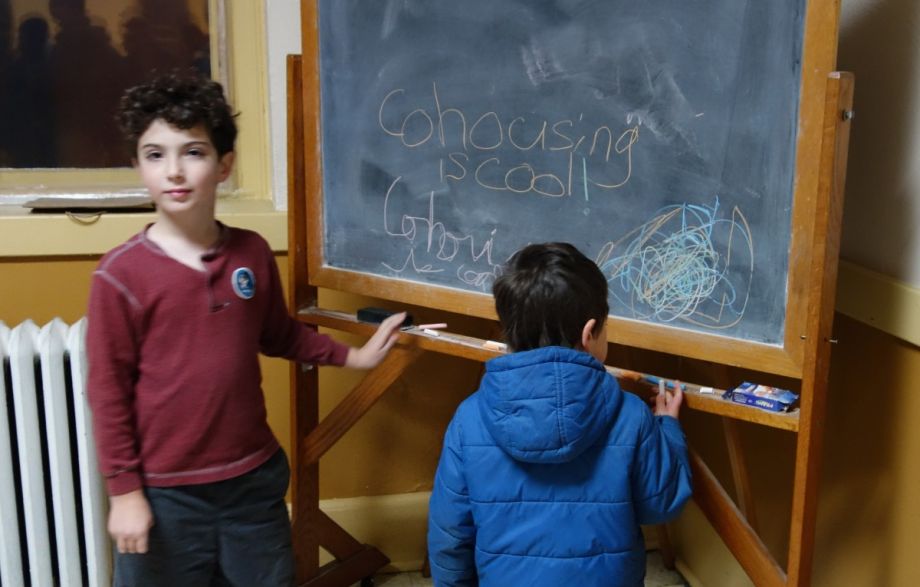There’s been a lot of recent debate about whether owning a single-family home is still a part of the American dream or whether we are becoming a nation of apartment-renting city-dwellers. But there are alternative living arrangements in cities where you can get the best of both worlds — earning equity through homeownership, while still maintaining the benefits of living within a tight-knit community.
Cohousing developments — or housing units organized around a central communal living hub — have been gaining traction as a way to provide shared, environmentally friendly, often affordable housing. There are about 200 existing or organizing cohousing communities in the U.S., according to the Cohousing Association of the United States.
Some are tailored for seniors, providing empty-nesters the opportunity to downsize without the strict rules of retirement communities. Others are intergenerational with families participating in shared babysitting, carpooling and cooking duties. Others, like the L.A. Eco Village, are permanently affordable developments.
Most cohousing developments feature shared kitchens, dining rooms, laundry, and meeting and event spaces that supplement individual residences. Cohousing developments emphasize community-building through participatory decision processes and resident input on design and management.
A cohousing group in Philadelphia, Wissahickon Village Cohousing (WVC), is set to become the first community of its kind in Pennsylvania, if its members successfully move into a converted church in the neighborhood of Mt. Airy.
Ken Weinstein, a local developer, is converting Mt. Airy Presbyterian Church and its adjacent school building into 19 or 20 market-rate apartments and giving WVC the opportunity to sell units to the group’s members if they commit to buying at least seven of the apartments. The sanctuary and basement of the church’s main building will be separate from its living spaces and will be rented back to the church congregation.
Wissahickon Village Cohousing was founded four years ago, but the group is comprised of “folks that have been trying to get cohousing off the ground in Philadelphia for at least 20 years,” says Abigail Weinberg, the community coordinator of WVC.
Right now, the price estimate for the Mt. Airy Presbyterian Church apartments range from $160,000 for a one-bedroom to $350,000 for a three-bedroom, and construction is slated to be completed around the end of 2015.
“There are a lot of people who are thinking about how to bring cohousing and affordable housing together, but as it stands right now, these apartments are pretty much going to be market rate,” says Weinberg. “The thing that makes them slightly more affordable is that people are downsizing considerably from larger houses, but also there’s this atmosphere of sharing resources — having less stuff, living a simpler life, and committing to sustainable living practices, so hopefully we’ll be saving money on utilities.”
Like a commune or a housing co-op, cohousing is another form of an “intentional community” that emphasizes social interaction, inclusivity and community engagement.
“The reason that we wanted the special kitchen and the dining room is that cohousing communities, in general, share meals more than three times a week,” says Weinberg. “Different people sign up to shop, cook and clean up. People are encouraged to participate that way. Then, you don’t have to cook those times a week. In addition, there’ll be some delightful events, meetings, parties, exercise classes, and a children’s playroom.”
The group is hoping that the Mt. Airy Presbyterian Church development will eventually be fully occupied by WVC members. They are holding three information sessions a month for people who want to learn more.
The Equity Factor is made possible with the support of the Surdna Foundation.

Alexis Stephens was Next City’s 2014-2015 equitable cities fellow. She’s written about housing, pop culture, global music subcultures, and more for publications like Shelterforce, Rolling Stone, SPIN, and MTV Iggy. She has a B.A. in urban studies from Barnard College and an M.S. in historic preservation from the University of Pennsylvania.

















